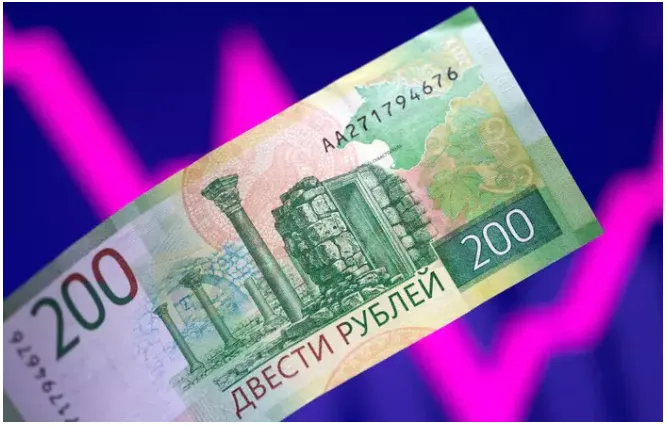Abstract:The rouble firmed on Wednesday, extending a recovery and heading towards levels seen before what Russia calls “a special operation” in Ukraine.

Stocks inched higher on the fifth trading day after a month-long hiatus.
At 0720 GMT, the rouble was 1% higher at 84.30 against the dollar and had touched 82.56 on the Moscow Exchange, a level last seen on Feb. 25, the day after Russia sent tens of thousands of troops into Ukraine.
Against the euro, the rouble rose 0.8% to 93.36, having briefly hit 90.73, its strongest level since Feb. 23.
The rouble received some support from the recent round of Russia-Ukraine talks in Istanbul, where the Russian delegation promised to scale down military operations around the Ukrainian capital of Kyiv.
The Russian currency is extending gains made last week after President Vladimir Putin demanded that natural gas exported to Europe or the United States be paid for in his countrys currency.
European countries, which import about 40% of their gas from Russia and pay mostly in euros, say state-controlled Russian gas giant Gazprom is not entitled to redraw contracts. The G7 group of nations rejected Moscows demands this week.
Dynamics driving the rouble lately are to some extent artificial. The currency, which had been free-floating until late February, is now steered by capital controls, a ban on buying cash dollars and euros and other administrative measures.
The central bank started buying gold from banks at a fixed price of 5,000 roubles per gram on Monday. [R4N2VL007]
Taking into account current gold prices, the rouble has room to firm to about 81 to the dollar, Otkritie Bank said in a note.
Sberbank CIB said the rouble could continue firming until the central bank started easing capital controls.
On the interbank market, the rouble traded at about 86 to 87 against the dollar. Banks offered to sell euros at 98.50 roubles and buy at 94 roubles.
VOLATILE STOCKS
Russian stocks have moved sharply and sometimes erratically in the past few days, after the central bank allowed the market to end a nearly month-long pause.
Trading volumes are far lower than normal and non-residents are barred from selling stocks and OFZ rouble bonds until April 1.
London-listed internet firm VK, one of a few companies to have flagged issues with servicing debt, saw its Moscow depositary receipts rallying 27% on Wednesday after a 72.3% leap the day before.
Shares in Russian state energy company Inter RAO jumped 25% after that firm recommended paying dividends.
The dollar-denominated RTS index rose 5.1% to 926.9 points, and the rouble-based MOEX Russian index was 3.2% higher at 2,485.7 points.
Flag carrier Aeroflot, one of the most volatile securities since the reopening, jumped 8.1%. Oil major Rosneft was 4.6% higher and dominant state lender Sberbank gained 3.5%.










